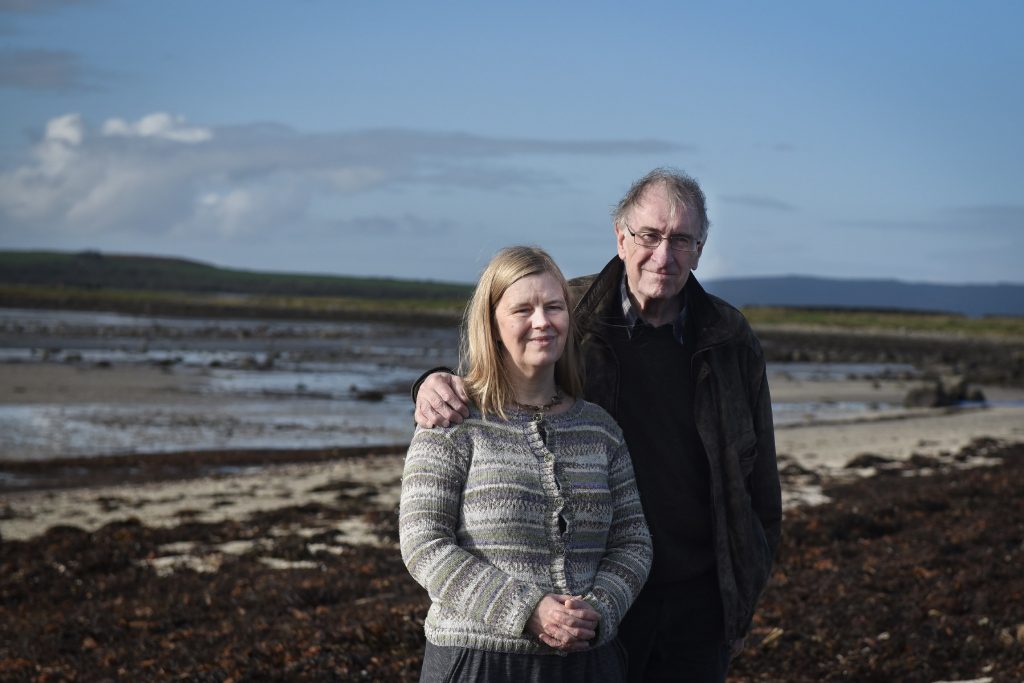Today would have been Chris’s eighty-first birthday. How I wish he were here to see it.

It is a perfect July morning here on Bute, the hills reflected in the waters of the firth, truer likenesses of themselves than you might see on more unsettled days. Reading Sarah Gristwood’s piece in the Guardian about her recent bereavement – her husband the film critic Derek Malcolm died last year – I find much that resonates. Like Gristwood, reading the words of other writers who have been here before me has been both incredibly helpful and strangely reassuring.
I find it difficult to say the word ‘widow’; the photograph above still feels truer to me than most things about the current situation. I have been luckier though than many of the writers Gristwood talks about in that work – writing – has been an unerring support to me. Some of you may know that Chris had been working on a biography of JG Ballard, a project he had very much hoped to complete but sadly did not. It was agreed between us before Chris died that I would finish the book, an undertaking we very much saw as our way of continuing to be together.
As the practical tasks that follow in the wake of a death are gradually completed, so I have been able to transfer more of my time and energy to working on the book. At times this still feels surreal but for the most part it is energising, life-giving. I know Chris would be pleased with how it is going.
Reading also continues to be a constant. At the moment I am finding great pleasure in rereading Patricia Highsmith’s The Talented Mr Ripley, a novel I discovered with wonder and joy in my late twenties, the first Highsmith I read. On rereading it is if anything even better – darker and more Machiavellian. I am certainly finding it less funny this time around!
To coincide with rereading the book, I am finally catching up with Steven Zaillian’s TV adaptation on Netflix, and what a thing of terrible beauty it is. I love the 1999 Minghella adaptation – Chris always said it was too long, but it’s in my Top 25 films of all time for sure – but Zaillian’s vision keeps more of the novel’s cruelty, its sense of unease. If anything, Minghella’s film is too beautiful, too – dare I say it – joyous? Maybe I’m placing too much emphasis on that incredible jazz sequence with Guy Barker but whenever I think of the Minghella film, in spite of the horrible things that happen in it I feel bathed in the endless sunshine of Positano. The black-and-white cinematography of the Zaillian adaptation is equally masterful but it lends to everything it touches – intentionally – a sense of the end-times, of dissolution. Andrew Scott is a more sinister, more morally bankrupt Ripley than Matt Damon, whose portrayal I love, I think, precisely because it allows me an emotional insight into the character. There’s no coming to terms with Scott’s Ripley; he is cold, selfish, opaque – exactly as Highsmith intended.
The Talented Mr Ripley happened to be the last of Highsmith’s novels Chris read. ‘How is this so good!’ he kept exclaiming. He had been looking forward to the new series. I think it would have gone down very well.